#jakob böhme
Explore tagged Tumblr posts
Text
Desire is the pivot between Light and Darkness.
— JAKOB BÖHME ⚜️ Genius of the Transcendent: Mystical Writings of Jakob Boehme, transl. by Michael L. Birkel & Jeff Bach, (2010)
#German#Jakob Böhme#Genius of the Transcendent#Mystical Writings of Jakob Boehme#Michael L. Birkel#Jeff Bach#(2010)
51 notes
·
View notes
Text
'Nature speaks in its own tongue.'
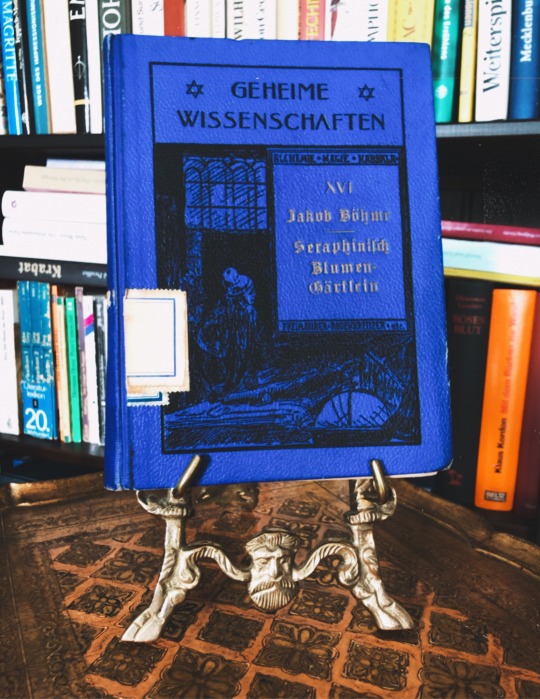
From the book series Secret Sciences - A collection of older and newer writings on alchemy, magic, Kabbalah, Rosicrucianism, Freemasonry, witches and devils Published by A . v. Linden in 1918 after the Amstadam original edition of 1700. 16th volume: Seraphinic Flower-Garden, selections from the mystical-religious writings of Jakob Böhme.
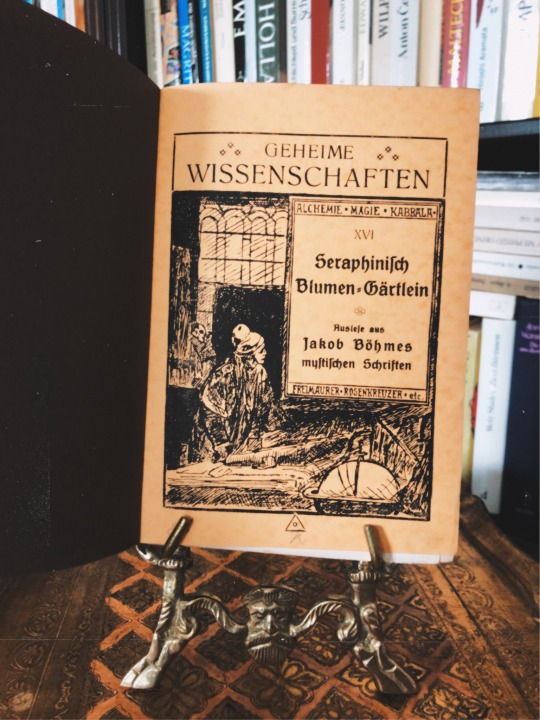
'Magia is the Book of all students.'
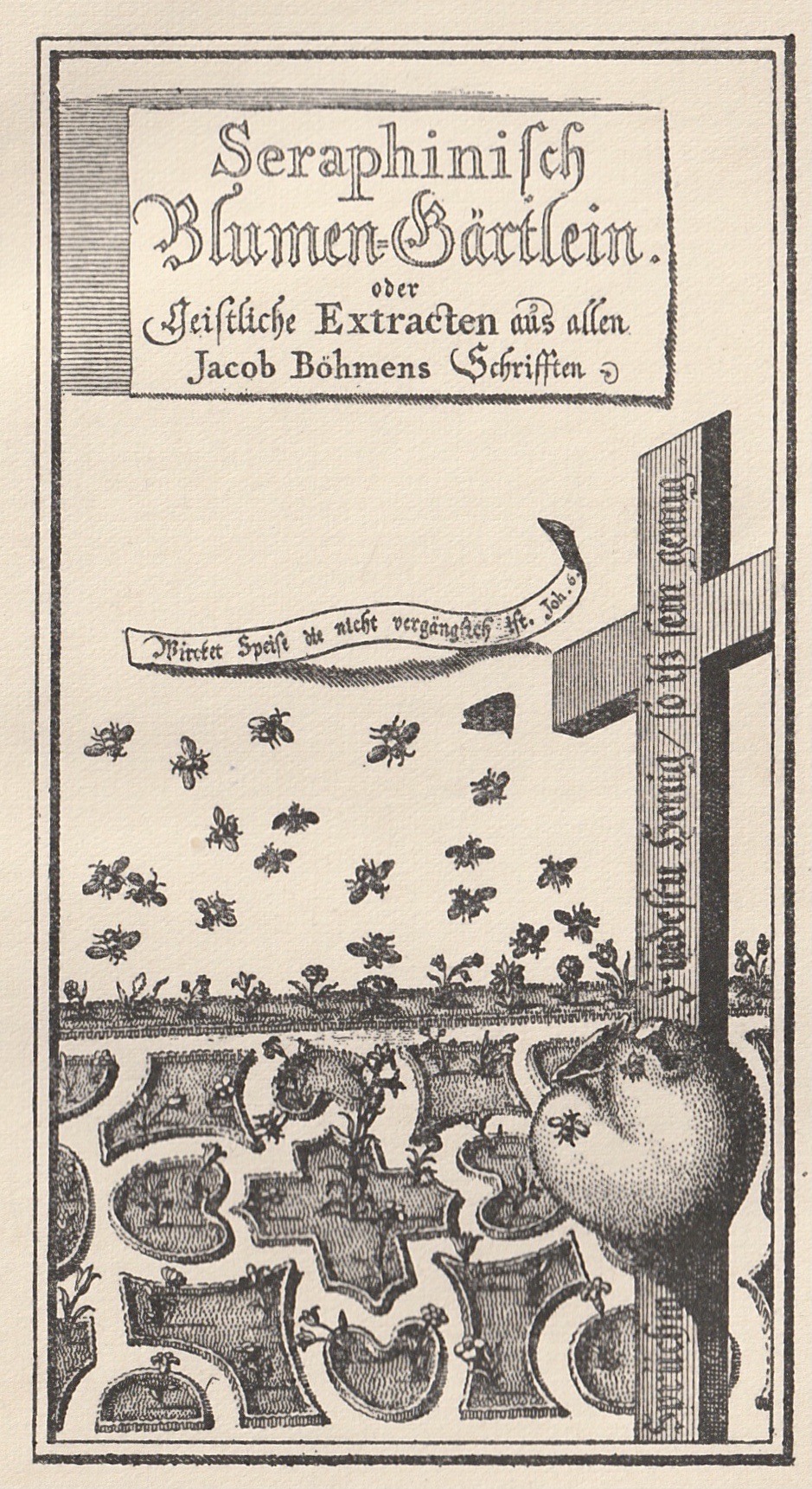
Mysticism should not only be interpreted as a significant phenomenon of intellectual and religious history, but as the awakening of the religious feeling concerning nature. Perhaps certain symbolic interpretations have receded into the background of our rationally calculated world, since everything that cannot be empirically proven is dismissed as a phantasm. But if the human being separates himself from his collective deep consciousness, he lacks a decisive possibility to (re-)connect with deep collective consciousness. Mysticism has the aim to deepen the soul for religion and art, a poignant love unparalleled in the world/s of appearances. Dwelling in a cosmic strive for connecting with God and the Divine Energy, without the profanity of manifestation in images, but in a astonishing cognitive emotionality. Through the art of inner liturgy it can be possible to trace the ontological search for the human’s home. The eternal questions, like fixed stars above the head of the dust born, have been no less relevant since the first question, and yet have not come closer to the truth, which is always in progress and false, when decorated as stored and captured. And don't we notice with every achievement how our collected knowledge is revised in the cosmic expanses? That we are almost forced to think outside the box and to regard regularity in chaos as an illusion? The cosmic rift is not only dividing humanity from the cosmos, it divided man from himself and thus also human beings from each other. In the centre of revelation, which is common in all mystic practices: learning and learning to know the self, in order to understand more.
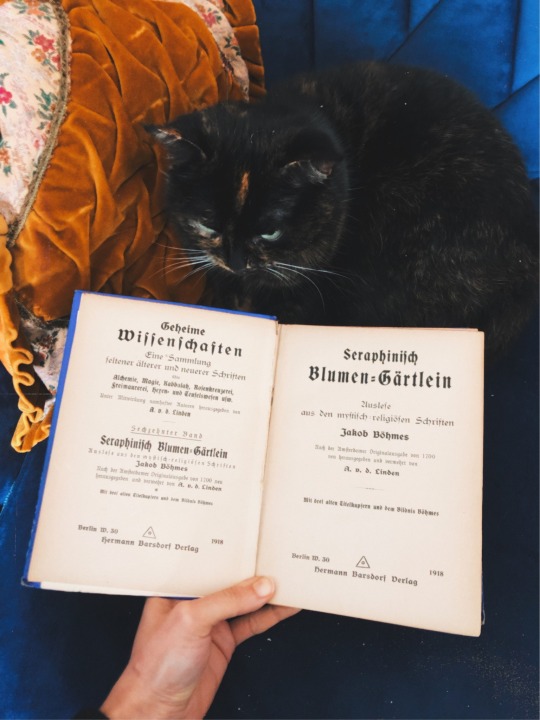

’Be sober, watch, fast and pray that you may deafen earthly reason and make it dead at once, that God's Spirit may take place in you! When he appears, he soon overcomes earthly reason and looks at the will in fear with its love and sweetness, since then always a beautiful twig is born out of the tree of faith, and serves all tribulations and temptations for the very best of the children of God.’
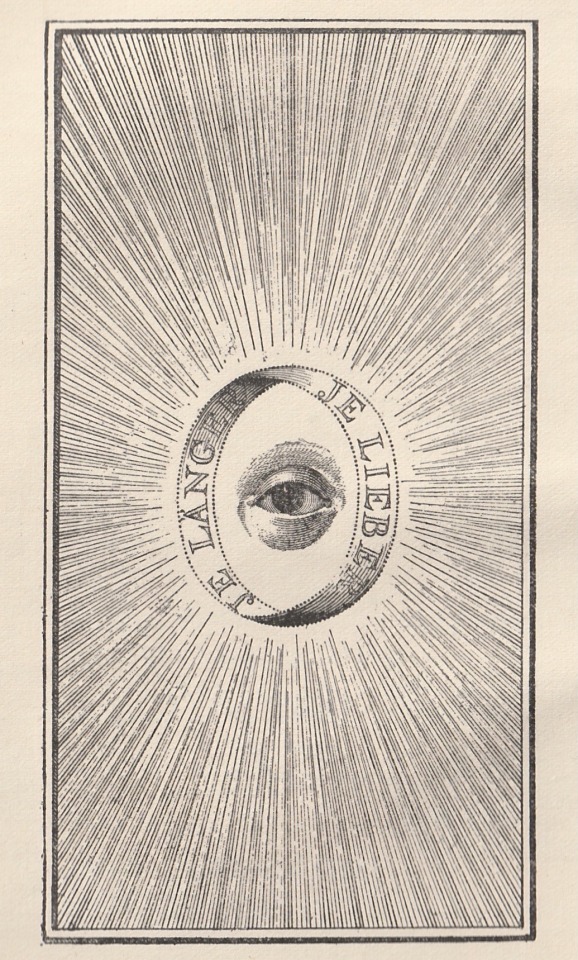
'Man comes to know the Creator in contemplation of himself.'
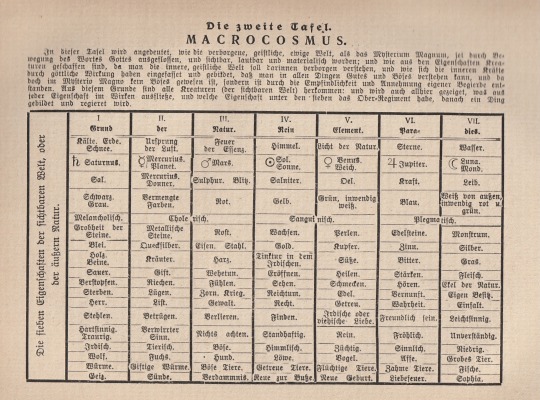
#mystical literature#german mystics#antiquarian book#literature#Jakob Böhme#cosmic religion#mysticism#metaphysical studies
20 notes
·
View notes
Text
De tu luz surge la misma fuerza, razón, entendimiento, habilidad y sabiduría, para gobernar todo el cuerpo y distinguir todo lo que está externamente fuera del cuerpo. Y ambas son una sola en el gobierno de tu mente, es decir, tu espíritu, que significa Dios el Espíritu Santo. Y el Espíritu Santo de Dios gobierna en este espíritu en ti, si eres un hijo de la luz y no de las tinieblas. Ahora bien, observad: en la madera, la piedra o las hierbas hay tres cosas contenidas, y nada puede generarse o crecer si falta una de las tres. En primer lugar, está el poder, del que se forma un cuerpo, ya sea madera, piedra o hierbas; después, en esa “cosa” hay una savia que es el corazón de la cosa. Y en tercer lugar, hay en ella un poder que brota y fluye, un olor o un gusto, que es el espíritu de la cosa por el que crece y se incrementa. Ahora bien, si alguna de estas tres falla, la cosa no puede subsistir. - Jakob Böhme
0 notes
Photo
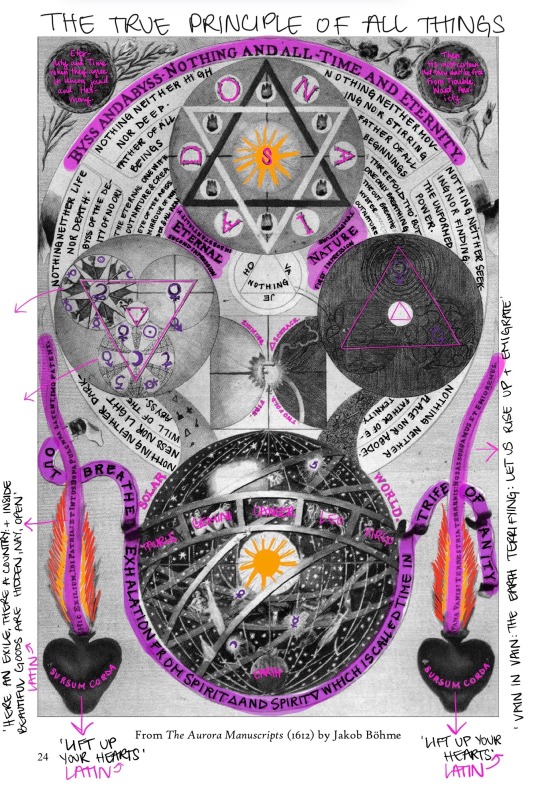
OKAY, here’s what I’ve done so far!!!
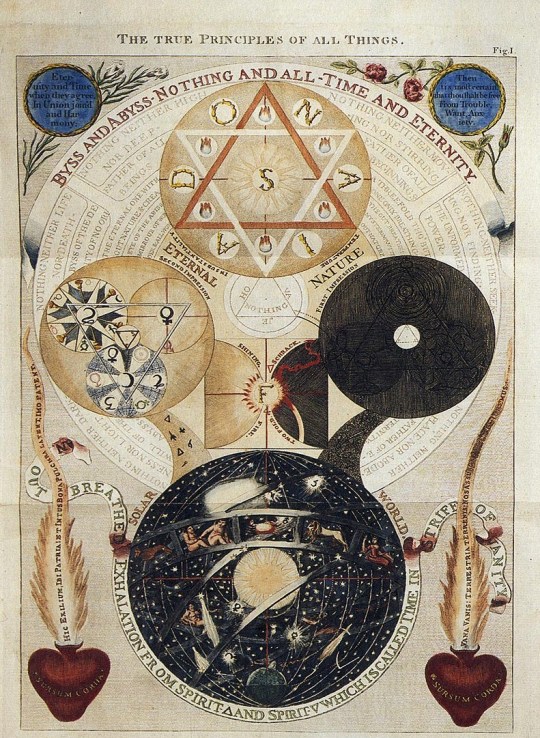
1K notes
·
View notes
Text


“The visible world is a revelation of the inner spiritual world, out of the eternal light and out of eternal darkness.” -Jakob Böhme, 1575-1624.
Astral Seer Talon Abraxas
257 notes
·
View notes
Text



Just Another Mystic Monday
Illustrations for this 1700 collection of writings by Christian mystic, Jacob Böhme, do not disappoint. In addition to the striking, full page eye, we have an otherworldly garden with flowers, a heart nailed to a cross, and a swarm of bees. (But did the librarian need to apply the ownership stamp right there?)
Böhme, Jakob. Der für die einfältigen epitomirte nicht tunckel, sondern klar und deutlich, redende hocherleuchtete Jacob Boehme; oder Seraphinisch Blumen-Gärtlein. Amsterdam [Wetstein?] 1700.
138 notes
·
View notes
Text
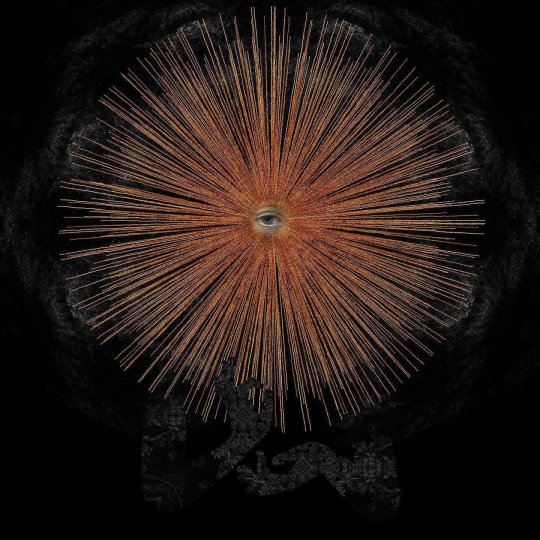
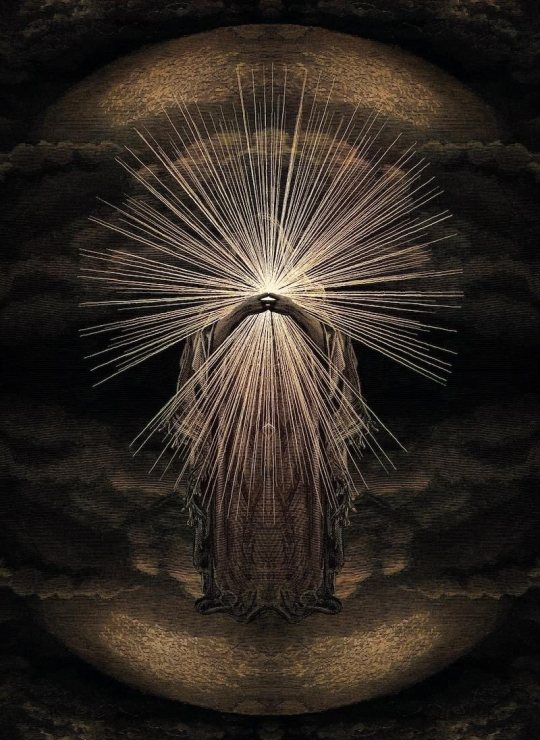
"The ‘mysterium magnum’ is the chaos wherefrom originates good and evil, light and darkness, life and death. It is the foundation or womb wherefrom are issuing souls and angels and all other kinds of beings, and wherein they are contained as in one common cause, comparable to an image that is contained in a piece of wood before the artist has cut it out." (Clavis, vi. 23.)
"The universe with all its beings has been created out of eternal nature, out of the seven spirits of eternal nature." (Threefold Life, iii. 40.) --Jakob Böhme (1575-1624)
‘The Teutonic Theosopher (Clavis, vi. 23.)
Artist: Dan Hillier (1973-2024)
401 notes
·
View notes
Note
what are your thoughts on 17th century German mystic Jakob Böhme
Haven't read too much of him but what I have read has been really fun!
63 notes
·
View notes
Text
Socialism: Utopian and Scientific - Part 3
[ First | Prev | Table of Contents | Next ]
"Materialism is the natural-born son of Great Britain. Already the British schoolman, Duns Scotus, asked, 'whether it was impossible for the matter to think?'
"In order to effect this miracle, he took refuge in God's omnipotence — i.e., he made theology preach materialism. Moreover, he was a nominalist. the first form of materialism, is chiefly found among the English schoolmen. "The real progenitor of English materialism is Bacon. To him, natural philosophy is the only true philosophy, and physics based upon the experience of the senses is the chiefest part of natural philosophy. Anaxagoras and his homoiomeriae, Democritus and his atoms, he often quotes as his authorities. According to him, the senses are infallible and the source of all knowledge. All science is based on experience, and consists in subjecting the data furnished by the senses to a rational method of investigation. Induction, analysis, comparison, observation, experiment, are the principal forms of such a rational method. Among the qualities inherent in matter, motion is the first and foremost, not only in the form of mechanical and mathematical motion, but chiefly in the form of an impulse, a vital spirit, a tension — or a 'qual', to use a term of Jakob Böhme's [2] — of matter.
[2] "Qual" is a philosophical play upon words. Qual literally means torture, a pain which drives to action of some kind; at the same time, the mystic Bohme puts into the German word something of the meaning of the Latin qualitas; his "qual" was the activating principle arising from, and promoting in its turn, the spontaneous development of the thing, relation, or person subject to it, in contradistinction to a pain inflicted from without. [Note by Engels to the English Edition]
"In Bacon, its first creator, materialism still occludes within itself the germs of a many-sided development. On the one hand, matter, surrounded by a sensuous, poetic glamor, seems to attract man's whole entity by winning smiles. On the other, the aphoristically formulated doctrine pullulates with inconsistencies imported from theology. "In its further evolution, materialism becomes one-sided. Hobbes is the man who systematizes Baconian materialism. Knowledge based upon the senses loses its poetic blossom, it passes into the abstract experience of the mathematician; geometry is proclaimed as the queen of sciences. Materialism takes to misanthropy. If it is to overcome its opponent, misanthropic, flashless spiritualism, and that on the latter's own ground, materialism has to chastise its own flesh and turn ascetic. Thus, from a sensual, it passes into an intellectual, entity; but thus, too, it evolves all the consistency, regardless of consequences, characteristic of the intellect. "Hobbes, as Bacon's continuator, argues thus: if all human knowledge is furnished by the senses, then our concepts and ideas are but the phantoms, divested of their sensual forms, of the real world. Philosophy can but give names to these phantoms. One name may be applied to more than one of them. There may even be names of names. It would imply a contradiction if, on the one hand, we maintained that all ideas had their origin in the world of sensation, and, on the other, that a word was more than a word; that, besides the beings known to us by our senses, beings which are one and all individuals, there existed also beings of a general, not individual, nature. An unbodily substance is the same absurdity as an unbodily body. Body, being, substance, are but different terms for the same reality. It is impossible to separate thought from matter that thinks. This matter is the substratum of all changes going on in the world. The word infinite is meaningless, unless it states that our mind is capable of performing an endless process of addition. Only material things being perceptible to us, we cannot know anything about the existence of God. My own existence alone is certain. Every human passion is a mechanical movement, which has a beginning and an end. The objects of impulse are what we call good. Man is subject to the same laws as nature. Power and freedom are identical. "Hobbes had systematized Bacon, without, however, furnishing a proof for Bacon's fundamental principle, the origin of all human knowledge from the world of sensation. It was Locke who, in his Essay on the Human Understanding, supplied this proof. "Hobbes had shattered the theistic prejudices of Baconian materialism; Collins, Dodwell, Coward, Hartley, Priestley, similarly shattered the last theological bars that still hemmed in Locke's sensationalism. At all events, for practical materialists, Deism is but an easy-going way of getting rid of religion."
Karl Marx The Holy Family p. 201 - 204
[ First | Prev | Table of Contents | Next ]
33 notes
·
View notes
Text

The fish lives in the water, the herb in the earth,
The bird in the air, the sun in the firmament,
The salamander must be kept in the fire,
And God's heart is Jakob Böhme's element.
(Angelus Silesius)
Illustration: The Haublin Engraving, 1700, colorized by Adam McLean
5 notes
·
View notes
Text
To burn in one’s own fire.
— JAKOB BÖHME ⚜️ Genius of the Transcendent: Mystical Writings of Jakob Boehme, transl. by Michael L. Birkel & Jeff Bach, (2010)
#German#Jakob Böhme#Genius of the Transcendent#Mystical Writings of Jakob Boehme#Michael L. Birkel#Jeff Bach#(2010)
50 notes
·
View notes
Text
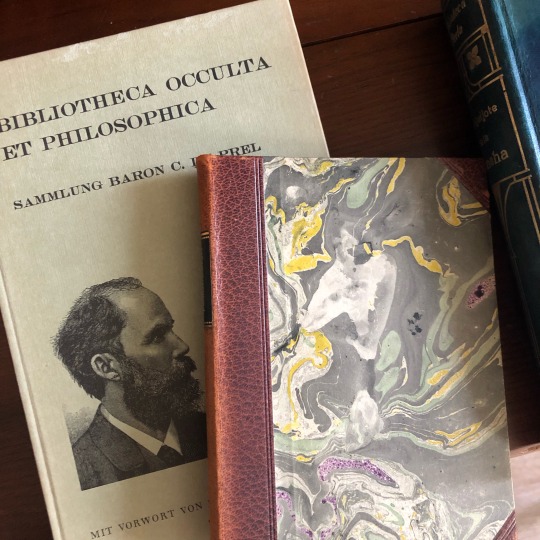
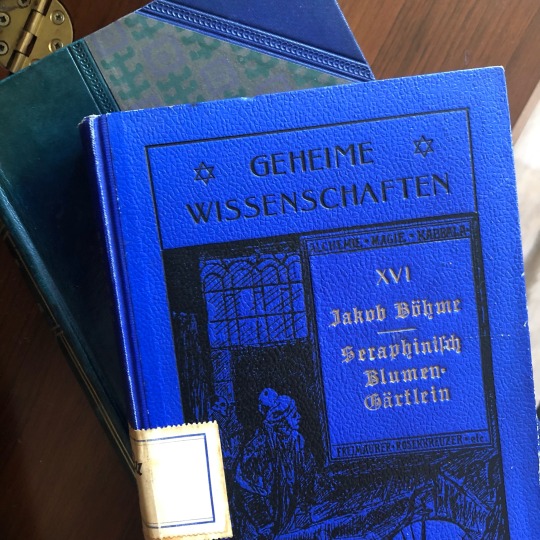
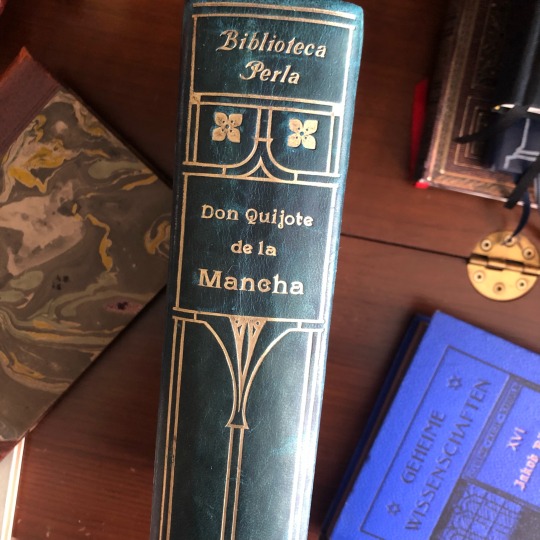
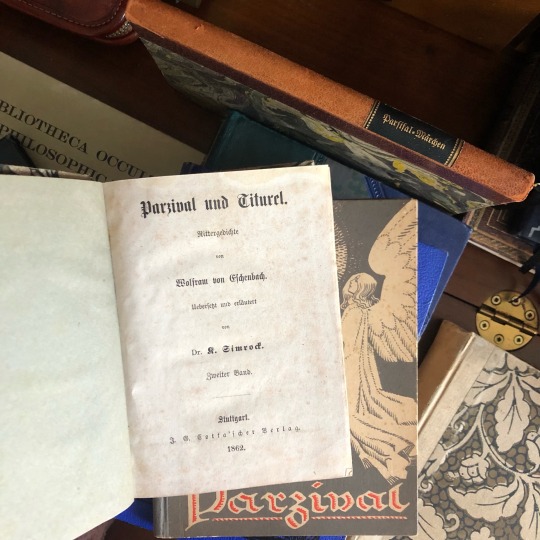
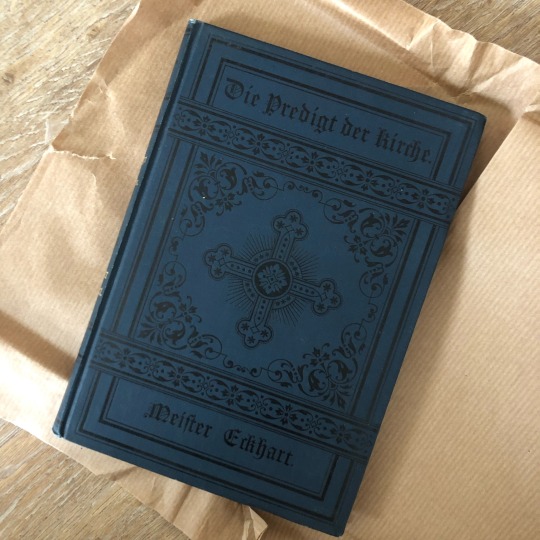
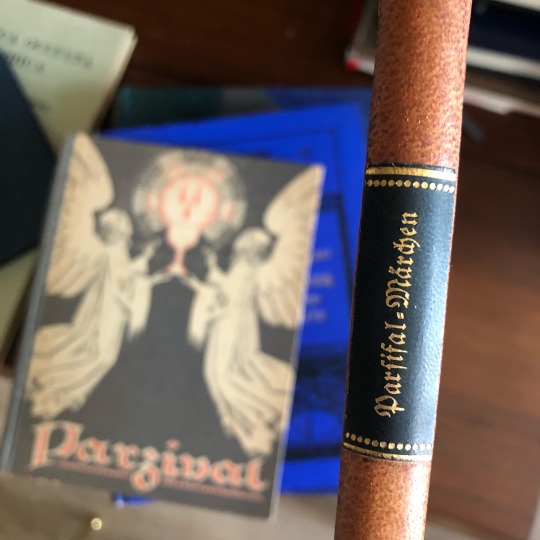
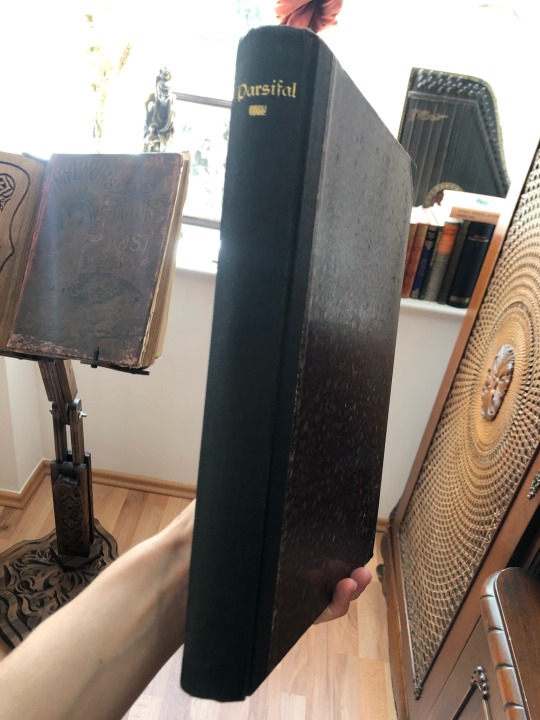
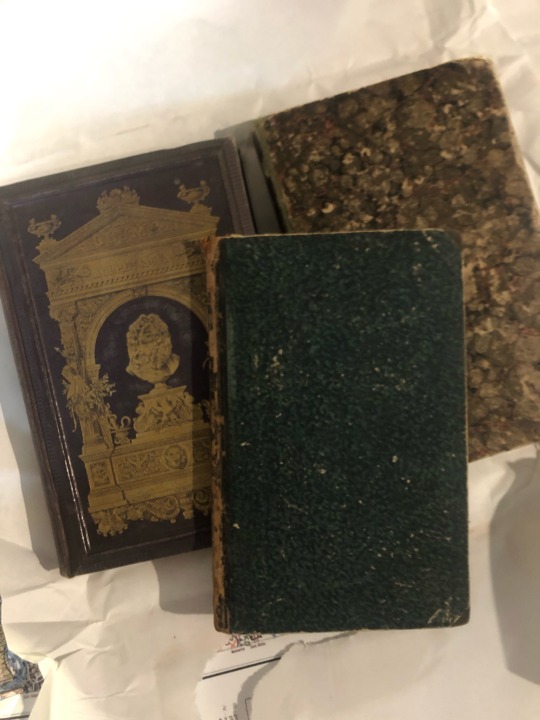
Some of the new old books I’ve got the last months 📖
#literature#book#world literature#antiquarian book#antiquarian#occult#mysticism#Don Quijotte#Parsifal#Meister Eckhart#Jakob Böhme Cervantes#mythology#some books of the last two months I’ve bought 💙
0 notes
Text
“The soul, like the moon, is never lost—only shadowed.”
Jakob Böhme, The Way to Christ
4 notes
·
View notes
Note
speaking of the unveiling, and bc im interested in hearing more of your thoughts on it, ive always been of the opinion that even as a parable or a metaphor or allegory or whatever you want to name it, because of the nature of the setting and how destiny largely tends to approach its own metaphysical "rules" in conjunction with its various narrators, that just because something is a metaphor doesn't necessarily mean it isn't also literal? if that makes sense. maybe it's leftover from when i was more of an elder scrolls girlie, but in my mind the two are not as mutually exclusive as one would think when it comes to fantasy/scifi especially in settings like destiny. there could very well be a "garden" and a "game" but exactly what and where (i believe these maybe more metaphysical concepts than physical and im open to being completely wrong) could be something completely inaccessible to human understanding if it even exists at all. that being said, im with you in wondering why everyone is getting angry over what i thought was kind of obvious.
Yeah, absolutely! I really love how Brookes phrased it:
“Unveiling is a parable. It is effectively a religious text. And how much of that is propaganda, how much of that is myth, how much of that is fact is deeply unclear in the nature of the text.”
Note how he never said it isn't real or literal. He said that we just can't know how much of it is myth and how much of it is fact due to the nature of the text. Most notably, due to who is telling it; the author being a biased party that is selling us a pitch to sway us to its side is super important.
If Unveiling is the result of the Witness peering behind the Veil and, well, witnessing the origins of the universe and therefore coming to a conclusion that everything is meaningless and that there is no greater purpose or a specific goal, the way the Witness would then try to present these origins of the universe would be painted by its conclusions. It has to make sense, the Gardener has to be meaningless and it has to prefer purposeless complexity over anything else and therefore the way the universe was constructed has to reflect that. So the Gardener and Winnower have to fight in a garden where everything was fine until the Gardener decided to make a change and that's why the universe exists as it does. And of course, don't forget that a part of the pitch is also to make us believe that the Gardener is not the right way to follow.
So an interpretation of these incomprehensible events would always to an extent fit the narrator. That means that we're basically dealing with a single interpretation of events that transpired which are impossible to factually see and measure. Someone else who looks at the Veil and uses it to see everything about the history of the universe will probably come to a different conclusion and will tell a different story based on the same events.
All terminology in the text is also very deliberately structured for human readers. There are references to big and small things that are specifically about only humans so this text would not work on any other species; it would have to be altered. This is immediately suspect because it shows that this was written for us and isn't just something that sprung out of nowhere fully formed with facts.
Among the references; the flower game which is literally just Conway's Game of Life (you can play it here btw) and it's a conscious reference since it mentions specific terminology from the game; the whole thing about the protein p53 which specifically calls it by our human terminology; the Cambrian Explosion which references geological eras and evolution of our planet; and super interesting reference to a specific individual, philosopher Jakob Böhme which is mentioned in two different pages. Someone did a deep dive into his philosophy in regards to the Veil because the Unveiling explicitly says that "he was right and it matters more than anything." Here's a really neat post about this on reddit if you want to dive into complex philosophical stuff.
These are hints that the author of the text is trying to put things into words that would make sense to us, humans, and that would additionally sway us to believe that the author is correct. So if you're trying to explain the origins of the universe to a human that you also want to sway to your position, you would naturally have to create a mythology that a human would be able to digest and believe.
I do believe that there's facts in Unveiling, as I've noted some like for example the Vex in my post about it. How do we explain existence before existence to a human and make them believe us? Use familiar terminology (garden, gardener, winnower, vex), construct a myth that neatly answers all questions, sprinkle references and facts about the real human history to show that the author is familiar with what they're talking about and then write in a way that's approachable.
So yeah. Something must've been there before the Big Bang. Our human brain really struggles to conceptualise this and humanity has been trying to figure it out since the dawn of time; through religion, philosophy, mysticism, science and all combinations of those. It might be literally impossible to figure it out and explain something like "initial singularity," especially in a way to make some humans decide that your story is interesting and worth following you for.
It's much simpler to boil it down to a "garden" with some relatable characters who are playing a game and get into a fight. It's easier to explain that the Vex may have preceded the existence of the universe by just saying that they escaped a garden where two cosmic beings fought over a game. This "place" (if we can call it that) might still exist, but by the virtue of being outside of our comprehension, it's easier to describe it as a garden with characters and a tree and some strange lifeforms. It's certainly more captivating than reading about real theoretical physics like for example this (as incredibly fascinating as it is, a lot of it will absolutely fly above people's heads, including mine).
The point is, the story could absolutely still be based on facts, as Brookes said, we just don't know what those facts are. The text itself is not telling ONLY facts because that's not its purpose, not to mention that it's easier to explain and entertain people by giving a cool myth with fundamental forces of physics and existence being shown through personifications who talk and argue and fight. People taking those personifications literally has always been weird to me because the text itself tells us they're allegorical. It's admitting that it's trying to explain things that are difficult to explain and is using a way for us to conceptualise this (showing itself as a benevolent entity that is eager to give us information), while also using this conceptualisation to weave its own propaganda in it at the same time.
Some of this will clear up soon. I'm very eager to find out if we'll ever get more of the Traveler's perspective on any of this. I would love to hear the Traveler say something at some point again. That would probably help us do our best to figure out more about what's fact and what's myth, but even that would be biased, in a way, even if the Traveler is the Gardener; the Gardener would still be telling us its own view of things. But another perspective would definitely help. Either way, it's a fascinating piece of text and an interesting dive into some really intriguing scifi concepts. I'm definitely not expecting some substantial 100% provable fact on how the universe began, as that question exceeds what a video game story can tell us, but will there be something that fits the setting? Some sort of an answer, as close to the truth as possible? Maybe!
To close this off, I always liked the story about the origin of the universe of the species called the Tiiarn, as told to Caiatl by her childhood mythkeeper, the psion Ahztja:
"Imagine the universe as swirling chaos," Ahztja said softly. Caiatl closed her eyes and saw it. "Among the chaos stands Irkyn La, the First Host, who blinks herself into existence with the First Thought: chaos must come to order." Caiatl saw a creature, tremendous beyond belief, in her mind's eye. "And so to satisfy the First Thought, which would become the First Law, Irkyn La consumes the chaos of the void and gives birth to the ordered universe." Caiatl opened her eyes, and they were bright with intrigue. "That is how the Tiiarn would say the universe began," Ahztja said. Caiatl looked at the toy in her hands, and then back at Ahztja. "Where does this giant woman live?" "The Tiiarn would say she is the very fabric of the universe. When you look to the sky, when you look out into space, you are looking into Irkyn La's mouth."
Who knows, maybe there's some truth to this myth as well.
69 notes
·
View notes
Text

“The visible world is a revelation of the inner spiritual world, out of the eternal light and out of eternal darkness.” -Jakob Böhme
Astral Mage Talon Abraxas
124 notes
·
View notes
